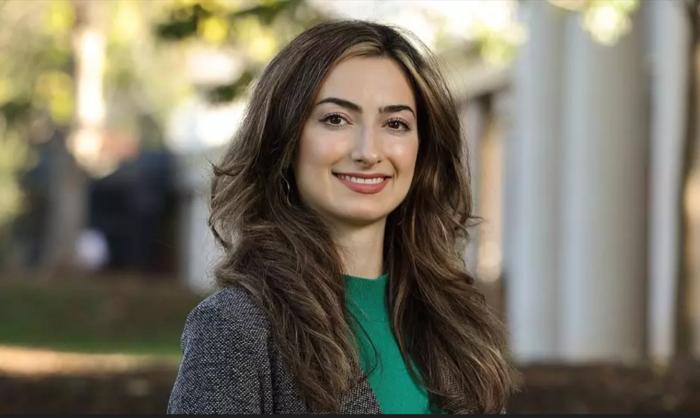Natasha Sheybani, assistant professor of biomedical engineering at the University of Virginia School of Engineering, will collaborate with researchers at Children’s National Hospital to study the combination of two therapies for pediatric brain cancer.

Credit: UVA Engineering
Natasha Sheybani, assistant professor of biomedical engineering at the University of Virginia School of Engineering, will collaborate with researchers at Children’s National Hospital to study the combination of two therapies for pediatric brain cancer.
High-risk brain tumors in children often don’t respond well to existing chemotherapy and radiation treatments, but Sheybani and her collaborators hope their fusion of therapies will offer a better option.
Over the two-year project, researchers will investigate the use of chimeric antigen receptor T-cell therapy, a type of immunotherapy that uses the body’s immune system to destroy tumors, and low-intensity focused ultrasound, which non-invasively directs sound waves toward targeted organs of the body. By combining the best of both therapies, they aim to trigger an immune response in the brain and help CAR T-cells fight off the cancer.
The project will initially focus on the “sonic hedgehog” and “group 3” subtypes of medulloblastoma, the most common pediatric brain malignancy. Both sonic hedgehog, named for the video game character due to the spiky protrusions on the protein, and group 3 subtypes are often fatal using existing treatments. Researchers hope their combined treatment will improve survivorship.
“Children with brain cancer represent a particularly vulnerable patient population in urgent need of far more effective and far less toxic treatment options,” said Sheybani. “We hope to deliver on that need by converging a powerful combination of therapies for the first time, in a unique set of preclinical models that faithfully recapitulate human disease.”
The research is funded by a $600,000 Idea Award, administered by the U.S. Department of Defense. Idea Awards are prestigious grants that support high-risk, potentially high-reward research that fills gaps in cancer prevention and treatment.
Sheybani’s collaborators include Dalia Haydar, assistant professor of pediatrics at the George Washington University School of Medicine and Health Sciences, and Yanxin Pei, associate professor of pediatrics at George Washington University. Both researchers are faculty members at Children’s National Hospital.
About UVA Engineering: As part of the top-ranked, comprehensive University of Virginia, UVA Engineering is one of the nation’s oldest and most respected engineering schools. Our mission is to make the world a better place by creating and disseminating knowledge and by preparing future engineering leaders. Outstanding students and faculty from around the world choose UVA Engineering because of our growing and internationally recognized education and research programs. UVA is the No. 1 public engineering school in the country for the percentage of women graduates, among schools with at least 75 degree earners; among the top engineering schools in the United States for the four-year graduation rate of undergraduate students; and among the top-growing public engineering schools in the country for the rate of Ph.D. enrollment growth. Our research program has grown by 95% since 2016. Learn more at engineering.virginia.edu.



